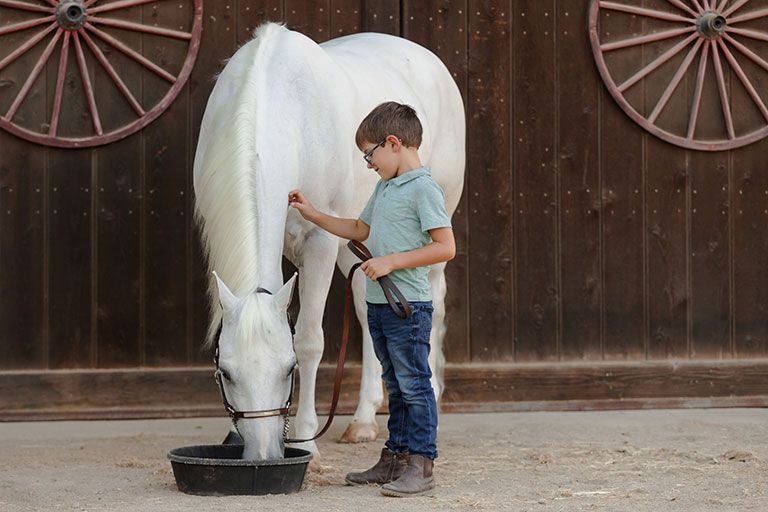As our beloved equine companions age, ensuring their wellness becomes increasingly important. Senior horse wellness encompasses a range of practices and considerations to maintain their health and quality of life. In this article, we will delve into the key aspects of caring for aging horses, providing practical tips and insights for horse owners.

Understanding the Aging Process in Horses
Just like humans, horses experience changes as they age. These changes can affect their physical and mental health. Understanding these transformations is crucial for effective senior horse care.
Physical Changes in Aging Horses
Aging horses may experience weight loss, muscle atrophy, and dental issues. It’s essential to monitor these physical signs and adjust their diet and care accordingly.
Mental and Behavioral Changes
Senior horses might show signs of cognitive decline or changes in behavior. Keeping them mentally stimulated through activities can help maintain their mental acuity.
Nutrition and Diet for Senior Horses
Proper nutrition is vital for senior horse wellness. Older horses often require a diet tailored to their specific needs.
Adjusting Feed for Aging Horses
As horses age, their ability to digest and absorb nutrients changes. Providing a balanced diet with high-fiber feeds and appropriate supplements can support their health.
Monitoring Weight and Condition
Regularly assessing your horse’s weight and body condition is essential. Adjust their diet as needed to prevent obesity or malnutrition.
Importance of Regular Veterinary Care
Routine veterinary check-ups are crucial for detecting and addressing age-related health issues promptly.
Dental Care for Senior Horses
Dental problems are common in older horses. Regular dental exams and care can prevent discomfort and improve their ability to eat. For more information on dental care, visit dental exams.
Vaccinations and Parasite Control
Maintaining an up-to-date vaccination schedule and parasite control program is essential to protect your senior horse from diseases.
Exercise and Mobility for Aging Horses
Keeping your senior horse active is vital for their physical and mental well-being.
Adapting Exercise Routines
While older horses may not be able to perform at the same level as their younger counterparts, regular, gentle exercise helps maintain their mobility and muscle tone.
Providing Comfortable Living Conditions
Ensure your horse has a safe and comfortable environment. Soft bedding and appropriate shelter are important for their comfort.
Monitoring Health and Wellness
Regular health checks and monitoring are essential components of senior horse wellness.
Recognizing Signs of Pain or Discomfort
Be vigilant for signs of pain, such as changes in behavior or movement. Addressing these issues promptly can prevent further complications.
Regular Health Assessments
Conduct regular assessments of your horse’s overall health and consult with a veterinarian for any concerns.
Emotional Well-being of Senior Horses
Emotional wellness is just as important as physical health for senior horses.
Social Interaction and Companionship
Horses are social animals. Providing companionship, either with other horses or human interaction, can enhance their emotional well-being.
Mental Stimulation and Activities
Engage your senior horse in activities that stimulate their mind, such as training exercises or games.

FAQs on Senior Horse Wellness
How often should I have my senior horse’s teeth checked?
It’s recommended to have your senior horse’s teeth checked at least once a year. Regular dental exams are crucial for maintaining their oral health.
What are common health issues in senior horses?
Common issues in senior horses include dental problems, arthritis, and weight management challenges. Regular veterinary care is essential to manage these conditions.
How can I improve my senior horse’s quality of life?
Providing a balanced diet, regular veterinary care, mental stimulation, and social interaction can significantly enhance your senior horse’s quality of life. For more tips, visit Blue Cross.
This article contains affiliate links. We may earn a commission at no extra cost to you.
